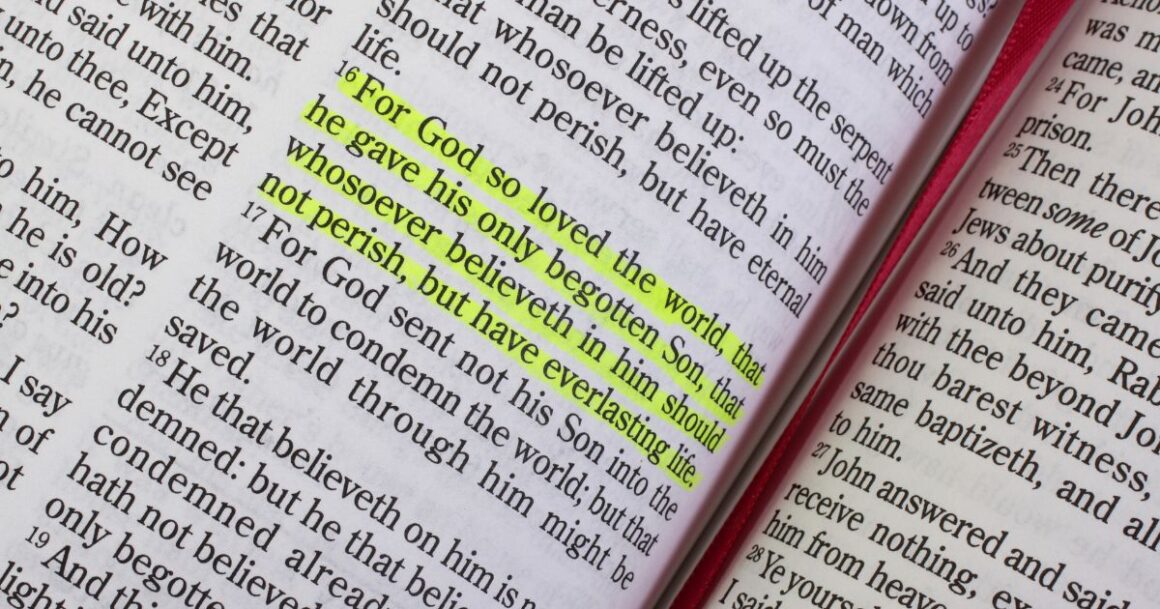
Hey there! If you’ve landed here, odds are you are looking at how to write a statement of faith. I’m so glad you’re here!
This article is designed to guide you step by step, making sharing your foundational beliefs in your own words not only manageable but deeply rewarding.
This post may contain affiliate links. Read disclosure here

Think of it as a heartfelt letter to yourself or others, laying out the core beliefs that light up your spiritual world.
A statement of faith is a formal declaration of an individual’s or organization’s core beliefs and doctrines regarding religious or spiritual matters.
For believers in Christ, it often outlines foundational beliefs about God, Jesus Christ, the Holy Spirit, the Bible, salvation, and other central tenets of the faith.

A statement of faith acts as a guide, helping you (and others) understand you and your belief system or foundational beliefs.
Christians author faith statements for confirmation, job applications, entrance into a church ministry, and Christian college and university applications.
Writing a statement of faith can be a transformative experience, personally and communally.
Writing a statement of faith encourages deep introspection. It pushes you to clarify and articulate your beliefs, leading to a better understanding of your spiritual journey.
The process can help you solidify and reaffirm your beliefs.
A statement of faith can act as a spiritual compass. When faced with moral or ethical dilemmas, referring to your statement can provide clarity and direction.
It offers a clear way to share your beliefs with others.
A written statement can be invaluable, whether discussing faith with friends or introducing yourself to a new religious community.
Some jobs and universities require a statement of faith to ensure applicants align with the institution’s religious values, foster community unity, and uphold their faith-based mission.
If you’re in a position of spiritual leadership or mentorship, a statement of faith can guide your teachings and clarify those you’re guiding.
It can serve as a testament to your beliefs, something you can pass down to future generations, helping them understand your spiritual journey and perhaps inspiring their own.
Writing, reflecting, and revising can lead to personal growth. You might discover new insights about your beliefs or find answers to lingering questions.
By writing down and sharing your beliefs, you’re holding yourself accountable.
It’s a commitment to uphold and live by the values and ideas you’ve outlined.
For many, writing can be therapeutic.
It can help them process past experiences, doubts, or faith-related challenges.

Seek Divine Guidance: Before you begin, pray for clarity and wisdom to articulate your beliefs genuinely.
Meditate: Spend quiet moments in reflection, allowing your thoughts to align with your core beliefs.
Personal Reflection: Recall personal experiences that have shaped your faith journey.
Document Initial Thoughts: Jot down spontaneous beliefs that come to mind first; these often represent your core convictions.
Prioritize Core Beliefs: Identify the non-negotiable foundational beliefs in your faith.
Consider Personal Experiences: Consider personal testimonies or experiences that have significantly impacted your faith journey.
Reference Relevant Scriptures: Cite specific verses or teachings that resonate with and support your beliefs.
Interpretation: Briefly explain how you interpret these scriptures in the context of your beliefs.
Use definitive language to express your beliefs. (don’t forget to use scriptures to back it up)
Share Personal Testimonies: Personal stories can be powerful affirmations of your beliefs.
If there are popular beliefs or misconceptions your faith aligns with, think about ways to address them. Again, use scriptures to back what you say up.
Aim to clarify your stance: Consider how to explain why certain beliefs don’t resonate with your understanding of faith.
Share your thoughts regarding your personal faith statement with trusted friends or mentors who can provide insights or ask probing questions.

Your statement is a reflection of your innermost beliefs. A good statement of faith is intimate and genuine. Envision a heart-to-heart with a close friend in a cozy café. How would you convey your faith?
What questions might they have that you can answer using a genuine, authentic tone?
Kick things off with a compelling start. Whether it’s a poignant personal story, a powerful quote, or a bible passage close to your heart, make it memorable.
This is the heart of your statement. Delve into the core of your beliefs. Explore your convictions about God, the essence of life, eternal life, heaven, and everything in between.
Bring your statement to a close. Reflect on your faith walk thus far and express your hope for the future.
You know that old saying, “Be yourself; everyone else is taken”? When you’re penning down your beliefs, let the real you shine through. Authenticity is key.
Let’s keep it simple and relatable. Toss out the heavy religious lingo that might leave some scratching their heads.
Dive deep, but keep it concise. Remember, this is a statement of faith, not your full testimony. Less is more.


If you’re a Christian crafting a statement of faith, there are foundational beliefs and statements that should be mentioned in your statement of faith. Use the following suggestions to guide you.
Affirm your belief in the triune nature of God – that God exists as three persons in one essence: God the Father, God the Son (Jesus Christ), and God the Holy Spirit.
God the Father as the first person of the Holy Trinity a loving and compassionate Father to all of humanity.
His nature embodies perfect justice, mercy, and love. Throughout scripture, He is depicted as a guiding force, a protector, and the one who sent His only Son, Jesus Christ, to redeem the world.
Emphasize the belief in God as the ultimate Creator of all things. God created the heavens and the earth, setting the stars in the sky and breathing life into every creature.
This wondrous act of creation reflects His majesty, power, and boundless love.
Acknowledge Jesus Christ as the Son of God, who came to Earth, born of the Virgin Mary, and lived among humans, teaching, performing miracles, and exemplifying perfect love and righteousness.
Be sure to include scripture from the New Testament describing.
Recognize the sacrificial death of Jesus Christ on the cross as an atonement for the sins of humanity, emphasizing the significance of His sacrifice for salvation.
Profess your belief in the bodily resurrection of Jesus Christ from the dead, conquering sin and death, and seated in Glory at the Father’s right hand.
Describe your faith walk as not about religion but about a personal and intimate relationship with your savior, Jesus.
Resource: Jesus calls us “friend” in the bible John 15:15
Affirm the Holy Bible as the inspired Word of God, serving as the ultimate guide and authority in faith, doctrine, and Christian living and how it serves as a source of truth, wisdom, and instruction.
Declare the belief that salvation is a gift from God, attainable only through faith in Jesus Christ and not by human efforts or deeds. Ephesians 2:8-9
Share how salvation gives believers the hope of heaven. Yes! True believers in Jesus will spend eternity living in heaven with God for all eternity.
You can find several beautiful verses about Heaven here.
Recognize the role of the Holy Spirit in guiding, empowering, and sanctifying believers, helping them lead a Christian life.
Resource: This is a great article about understanding the Holy Spirit
Emphasize the importance of living a life that reflects the teachings of Jesus, including loving one’s neighbor, seeking justice, showing mercy, and walking humbly with God.
Acknowledge the church as the body of Christ, emphasizing the importance of community, fellowship, worship, and service.
Profess your belief in the eventual return of Jesus Christ, the final judgment, and the establishment of God’s eternal kingdom.
Highlight the significance of prayer, Bible reading, community, service, baptism, etc.
Remember, while these are foundational beliefs for many Christians, it’s essential to articulate them in a way that genuinely reflects your personal relationship with God.

I hope this guide aids you in penning your personal statement of faith.
Before diving in, take a moment to pray, settle in with a coffee, and find your cozy spot.
Use the steps I’ve shared, drawing from your own personal faith walk. You’ll soon see the process isn’t just doable but truly enriching. Before long, you’ll have a statement reflecting your unique faith journey.

I’ve been keeping it real since 1963. 🙂
I’m a child of God, a wifey, mama, grandma, full-time creative, domestic engineer, and self-care enthusiast.
I am obsessed with all things makeup and skincare and love getting my hands dirty out in the garden, my art room, or in the kitchen, whipping up something yummy for the fam.
I’m always down to chat and love collaborating with other creatives and brands alike!
Feel free to reach out anytime!